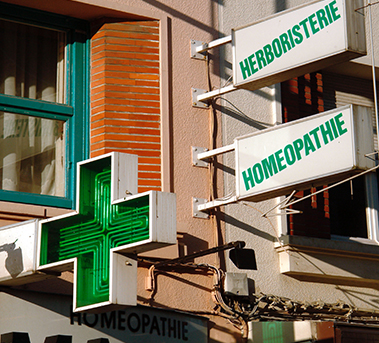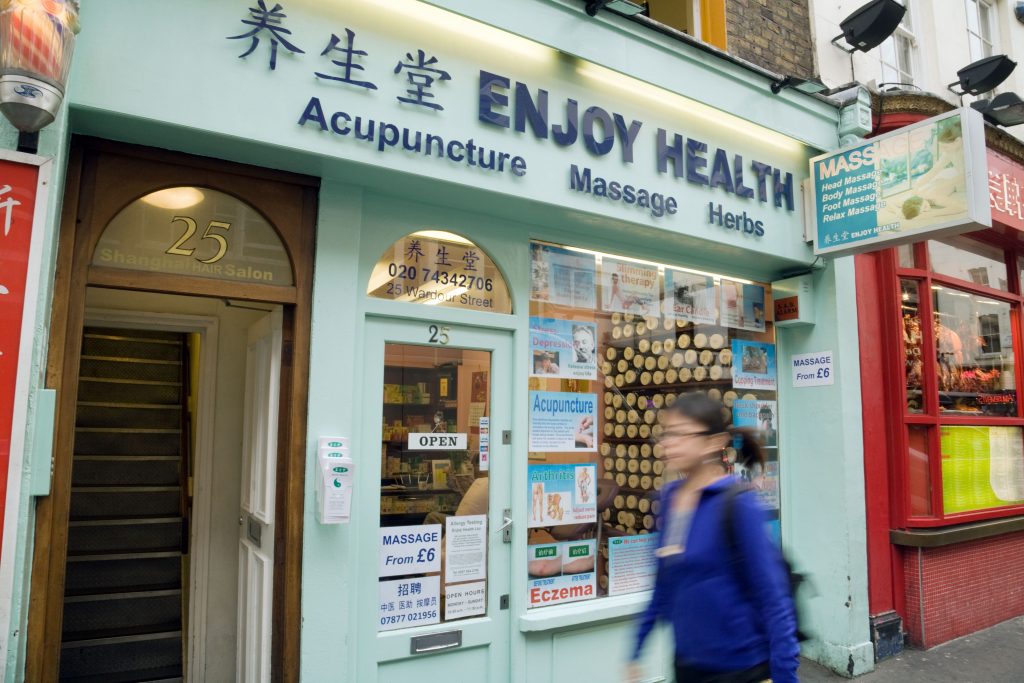France
France provides an example of a strict regulatory approach to non-biomedical healing practices. The project interrogates both the history and contemporary effects of an ambivalent system in which biomedical professions can legally treat or diagnose, yet where a many complementary or alternative therapies are used. It explores the grey-regulated areas that this has come to constitute, and if and how the state is looking to revisit the current system.

France nord picardy pas de calais st omer menu sign outside pharmacy
England
By contrast to the French example, England (and the UK more generally) has adopted a relatively liberal approach to alternative and traditional medicine, allowing multiple practices to co-exist. This has been organized around a complex regulatory system, where state regulation and professional regulation have framed some practices, while others have continued to exist outside any official form of regulatory intervention. The place of complementary and alternative medicines is also complicated by the particular role played by the NHS, and historical shifts in the place that complementary healing can play in the public health system. Conversations on the suitability of current systems have been high on the policy agenda since the turn of the century, however. This case study seeks to unpack both the history and contemporary contexts of those debates, and the roles of law and regulation in this complex and fast-changing landscape.

